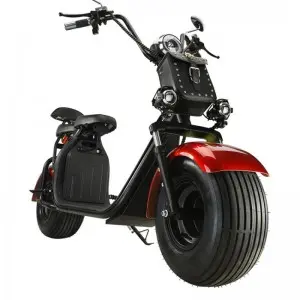What are the successful cases of battery recycling of Harley-Davidson electric vehicles?
With the rapid growth of the electric vehicle market, battery recycling has become an important issue. As a well-known brand in the electric vehicle field, Harley-Davidson’s successful cases of battery recycling not only reflect the company’s social responsibility, but also provide valuable experience for the entire industry. The following are some successful cases of battery recycling of Harley-Davidson electric vehicles:
1. Tesla’s battery recycling service in China
As a leader in the electric vehicle industry, Tesla’s battery recycling service in China is a successful case in the industry. Tesla promises that scrapped lithium-ion batteries will not be landfilled and can be 100% recycled. This commitment not only reduces environmental pollution, but also provides an example for the recycling of resources.
2. Industrial application of fully automated disassembly equipment of Brunp Recycling
Brunp Recycling has established a complete R&D system in the field of power battery recycling and successfully realized the industrial application of fully automated disassembly equipment. The company mainly uses wet recycling technology for ternary lithium batteries. Through a series of chemical impurity removal processes, ternary precursors are produced, realizing the recycling of battery-grade ternary cathode materials
3. GEM’s power battery recycling full life cycle recycling system
GEM Co., Ltd. has the processing capacity of various batteries and has built a waste power battery recycling and processing capacity of 130,000 tons/year. Through its own recycling channels, GEM has reached recycling agreements with 350 battery companies and automobile manufacturers, with an annual disassembly capacity of 200,000 tons. The company has created a full life cycle recycling system of “power battery recycling-cascade utilization-raw material remanufacturing-material remanufacturing-power battery remanufacturing”
4. Ganfeng Lithium’s waste lithium battery comprehensive recycling project
Ganfeng Lithium has built a 34,000 tons/year waste lithium battery comprehensive recycling project, and carried out in-depth research on technologies such as the sophisticated high-value utilization of waste lithium iron phosphate batteries and the high-value clean recycling of retired ternary lithium battery materials. Ganfeng Lithium uses pyrolysis and solid fluorine technology to fully reduce pollution problems in the recycling process, achieving a comprehensive lithium recovery rate of more than 90%, and nickel, cobalt, and manganese recovery rates of more than 98%
5. Chinese government policy support for power battery recycling
The Chinese government attaches great importance to the issue of power battery recycling and has issued a series of policies to regulate and support the development of the industry, including the “Interim Measures for the Management of Recycling and Utilization of Power Batteries for New Energy Vehicles”. It is expected that policy support will be further increased in the future
6. Exploration of the recycling and utilization system of electric bicycle batteries
The State Council’s Safety Committee issued a plan to explore the recycling and utilization system of electric bicycle batteries and guide electric bicycle production, sales, and maintenance companies to participate in battery recycling
7. New progress made by Professor Liu Baicang’s team at Sichuan University in recycling lithium from waste electric vehicle batteries
Professor Liu Baicang’s team at Sichuan University has made new progress in recycling lithium from waste electric vehicle batteries, and published a study entitled “Extraction of waste lithium-ion batteries with manganese-based and aluminum-based adsorbents”, which provides a new technical path for lithium recycling from waste electric vehicle batteries
These successful cases demonstrate the multi-faceted progress in the field of Harley-Davidson electric vehicle battery recycling and processing, from corporate self-recycling to policy support and then to technological innovation, which have jointly promoted the development of the electric vehicle battery recycling and processing industry. With the continuous advancement of technology and the continuous improvement of policies, the recycling and processing of electric vehicle batteries will be more efficient and environmentally friendly in the future, making greater contributions to sustainable development.
Post time: Dec-13-2024

